The policy brief and study hinged on protecting public health and safeguarding Ghana’s tobacco policy and regulation from industry influence.
The policy brief is focused on strategies and tactics employed by the tobacco industry and its allies to influence the passage of Ghana’s Excise Duty Amendment Act, 2023 (Act 1093).
It also outlines an intricate network of industry-allied groups aimed at misinforming the public against raising tobacco taxes and the active promotion of e-cogs through a comprehensive and elusive approach.
According to the study, these industry strategies threaten Ghana’s public health, necessitating immediate action to safeguard these critical public health policies from tobacco industry interests.
Giving his welcome address at the launch, the Executive Director of Programmes at Vision for Alternative Development, Mr. Labram Musah called for a coordinated approach to stop the marketing tactics of the tobacco and related industries that prey on children and young people, revealing that tobacco kills 6300 people in "Ghana today."
Following this development, Mr Musah entreated the young people in the country to recognize, expose and resist the deceptive tactics used by the tobacco industry and its allies to recruit new, younger customers—at the eventual cost of millions of lives lost.
The tobacco industry needs young people to buy their products, which may result in nicotine addiction, so that they become long-term consumers. This creates the opportunity to replace the 8 million people worldwide who die of tobacco-related causes every year. It is a matter of profits over people—an indefensible choice."
Alarming over the prevalence of deaths by
the users of tobacco products in Ghana, Mr Musah stressed that it is a high time for the schools to refuse any form of sponsorship and prohibit representatives of the tobacco and nicotine companies from engaging with students, saying that the study has showed thar there is a high prevalence of shisha or e-cigarette use among university students in Ghana.
He noted that looking at the increasing deaths associated with the use of tobacco products in Ghana, it is important for the government of Ghana to take steps by way of implementing WHO Framework Convention on Tobacco Control (FCTC) which provides comprehensive guidance to reduce tobacco consumption and save lives.
He urged everyone to become educated, raise awareness and help create a tobacco-free generation, emphasing that “We each have a critical role to play.”
"We are saying that the social media platforms should ban all forms of marketing of tobacco and related products. Governments and the financial sector should divest from tobacco and related industries," Mr Musah stressed.
Data released VALD Ghana and Civil Society Organisations indicate that tobacco use in any form leads to mortality and morbidity of millions of people every year, not only tobacco users but also non-users by inhaling secondhand tobacco smoke.
According to Musah, the tobacco is the only legal products that kills its user when they use it as prescribed by the producer (tobacco industry) Tobacco use causes 8 million deaths worldwide (WHO 2023) and 600,000 deaths from secondhand smoke.
He indicated that VALD-Ghana, an organization committed to tobacco control and public health, takes great pride in our track record in this vital area and we are glad we are taking steps to ensure public health is protected and safeguarded from industry interferences in public health policies.
He asserted that the WHO Framework Convention on Tobacco Control (FCTC) currently boost of 183 countries who are signatories.
He pointed out that smoking prevalence in the African region remains the lowest among all WHO regions (5-10%) Progress in the African continent has been slow with modest achievement Region experiencing some of the highest rate of increase in the number of tobacco users.
According to him,WHO African Region accounts for 18.2% of the global area under tobacco cultivation and 11.4% of tobacco leaf growing in the world.
He mentioned that Ghana passed a tobacco control law call the Tobacco Control Measure within the Public Health Act (Act 851) in 2012 and subsequently passed the TC regulations in 2017.
Articulating on the key provisions, Mr Musah noted that the ban on smoking in public places, ban sale to and by minors, ban advertisement, introduced health warnings on tobacco packages etc, adding the tobacco kills 6300 people in Ghana today.
Indeed, the greatest threat to advancing public health and protecting young people from harm is industry interferences–particularly the tobacco industry and other health harming products ie alcohol and SSBs.
"Today, we have gathered here to identify some key strategy, tactics and activities undertaking by the tobacco industry and their allied organization aimed to delay, divert attention and to stop the passage of the Act especially during the passage and implementation of the Excise Duty Amendment Act. Not taking cognizance of that fact that the Act is essential for safeguarding public health and the integrity of our tax system," Mr Musah noted.
He said that the Act 1093 was faced with multiple degree of interference notably from the tobacco, alcohol and SSBs industry.
According to him, they brought forth old industry arguments they have made for year just to gain public support, adding that the government is overburdening the people with taxes
He stressed that the taxes will lead to illicit trade in tobacco products.
He was of the view that the taxes
will increase unemployment rate, saying that the government is insensitive to businesses..
He stressed the arguments for excise taxes have been well established with evidence to show that excise taxes defy all the arguments made by industry.
He added that the Excise Taxes are taxes levied on health harming products such as tobacco, alcohol, SSBs, transfat products etc, saying that they are are referred to as corrective taxes or health taxes or health promotional taxes.
In effect he emphasized that these excise taxes are important for public health; Reduces exposure and accessibility to children who are the target of the TI Improves health and wellbeing of all Sustainable revenue stream to government to finance social and development project when earmarked.
"It reduces poverty – smokers are able to invest their money into productive ventures
– even those addicted will reduce the number of sticks- research indicates that smokers from low- and middle-income countries spend on average 4-5% of their household income on tobacco use.
"It is important to emphasize the point that the Global Treaty WHO FCTC Article 5.3. has important provisions that seeks to protect public health policies from industry interferences," he said.
He noted that it is on this basis that many countries are CSOs like VALD Ghana is trying to ensure that it safeguards tobacco control policies from industry interferences-
This, according to hi includes research that identifies interferences in other to as much as we can expose them and make recommendations to government.
For his part, the lead researcher of the study, Darlington Logo, noted that despite the gains that Ghana has made with tobacco tax, the tobacco industry continues to undermine public health efforts.
He explained that, as outlined in WHO FCTC Article 6 and agreed by experts, raising tobacco taxes is a highly effective strategy for reducing tobacco use and its harmful consequences, adding that the structuring of tobacco taxes also decreases tobacco companies’ profits, so it is a tobacco control measure that industry players aggressively oppose.
What is the problem?
The study identified persistent industry interference in Ghana’s public health policies as a significant impediment that the tobacco industry poses to the effective implementation of tobacco control measures, which in effect undermines the nation’s public health goals.
This interference was observed during the recent passage of the Excise Duty Amendment Act 2023, a critical legislation to transition Ghana to a hybrid tax regime for tobacco products.
Furthermore, the study found that to weaken the effectiveness of taxation on tobacco products, the tobacco industry establishes and employs strategies to circumvent and undermine tax policies, including legal challenges, direct lobbying, and indirect interference via third parties.
They successfully utilise arguments that exploit concerns about the political economy of taxation while historically being found complicit in tax avoidance, smuggling, and bribery.
The study further revealed that the tobacco industry often collaborates with third-party organizations to advance their interest.
In Ghana, organizations like the American Chambers of Commerce Ghana, the Harm Reduction Alliance of Ghana (HRAG), and the Institute of Liberty, Policy, and Innovation (ILAPI) have been identified to have played roles in promoting industry interest and delaying the swift passage of the Act in the country, the report said.
It said the American Chamber of Commerce (AmCham) exaggerated the negative economic impact of the proposed tax policy by citing potential job losses (labour concerns) and the high possibility of total business shutdowns, downplaying the significance of excise taxes.
The study also identified the British American Tobacco (BAT) and other industry-allied organizations as those that pushed for the inclusion of e-cigarettes in the Excise Amendment Act alleging that these bodies framed e-cigarettes as safer smoking alternatives despite the availability of evidence that indicated serious health risks associated with the product.
Recommendations
To prevent the tobacco industry from undermining the future, tobacco control efforts and implementing current policies, the study said, must be pursued.
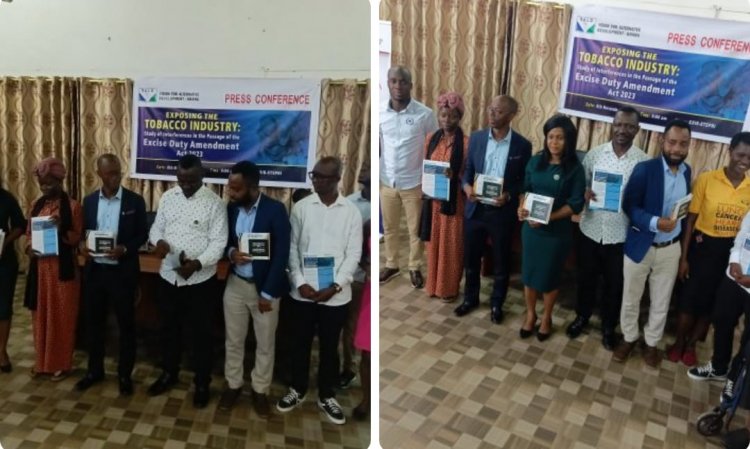

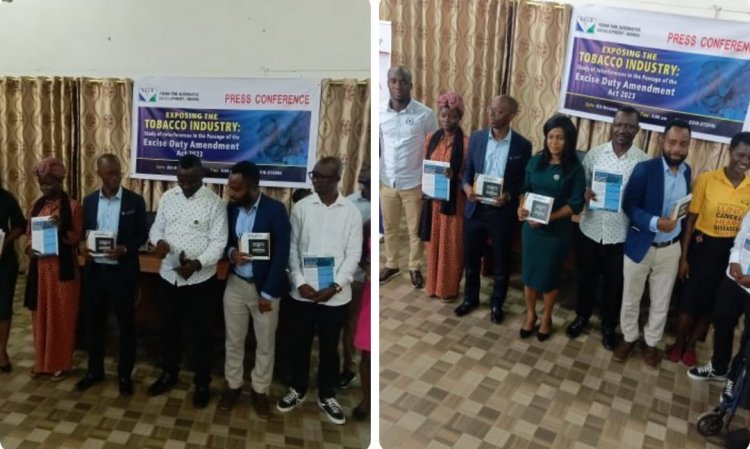
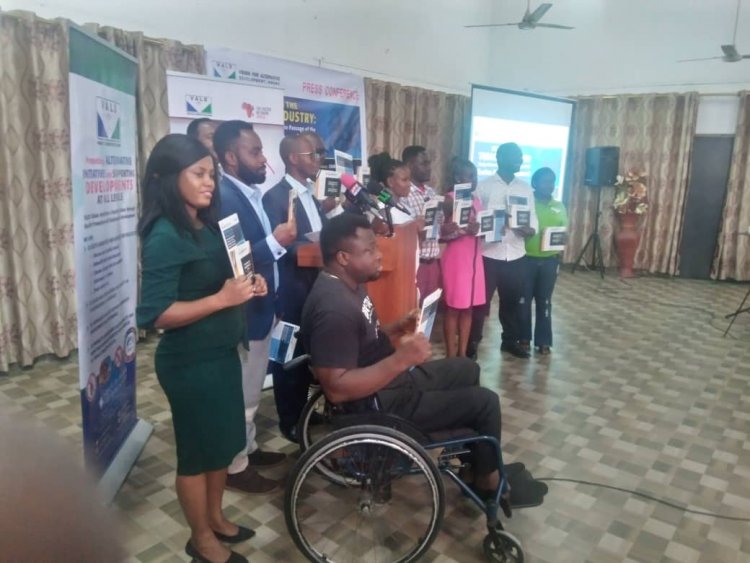
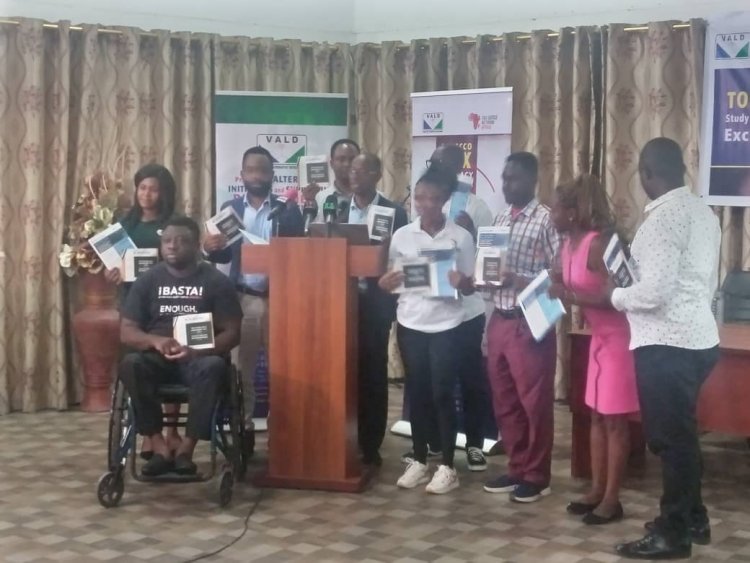
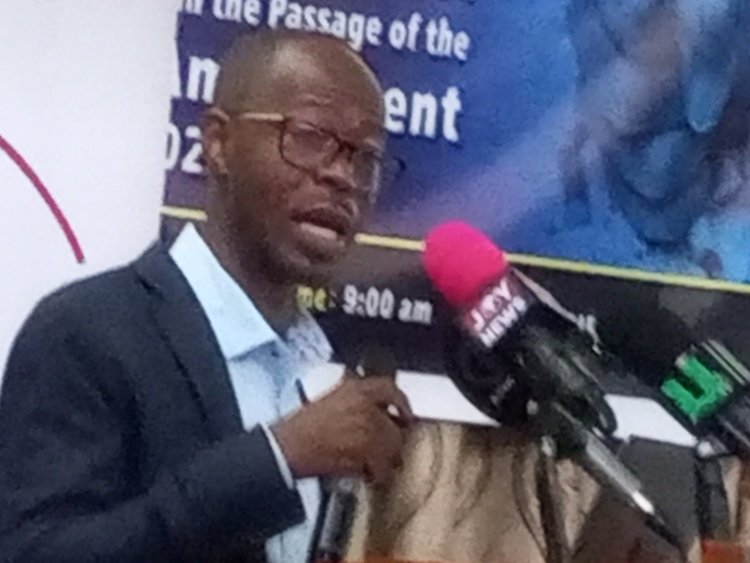
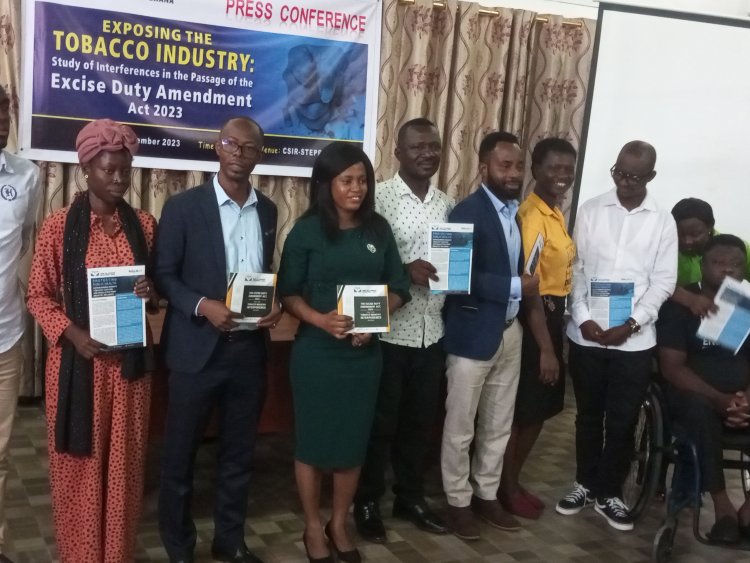

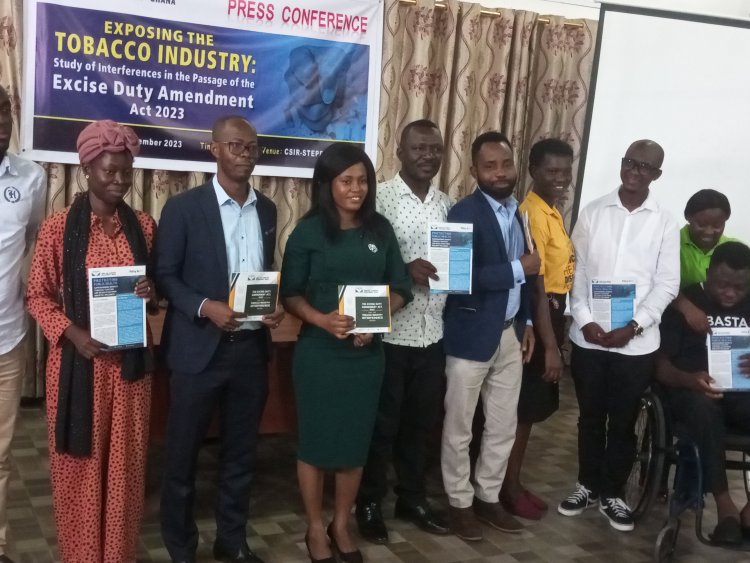
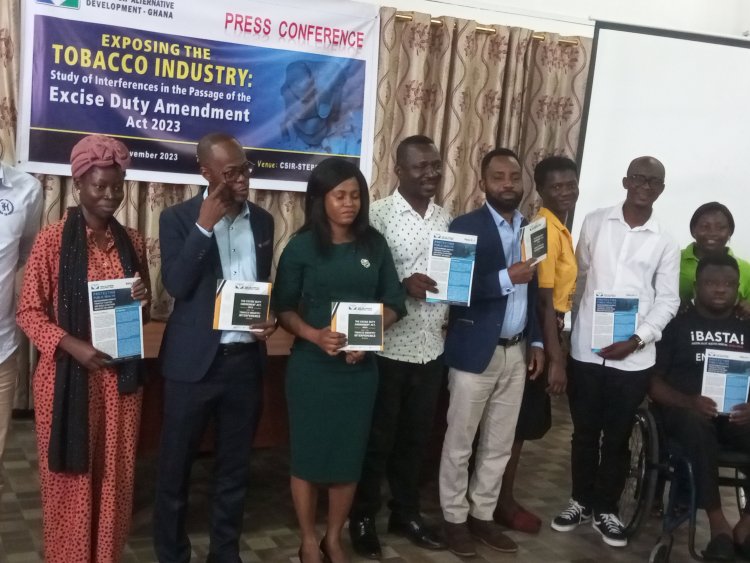
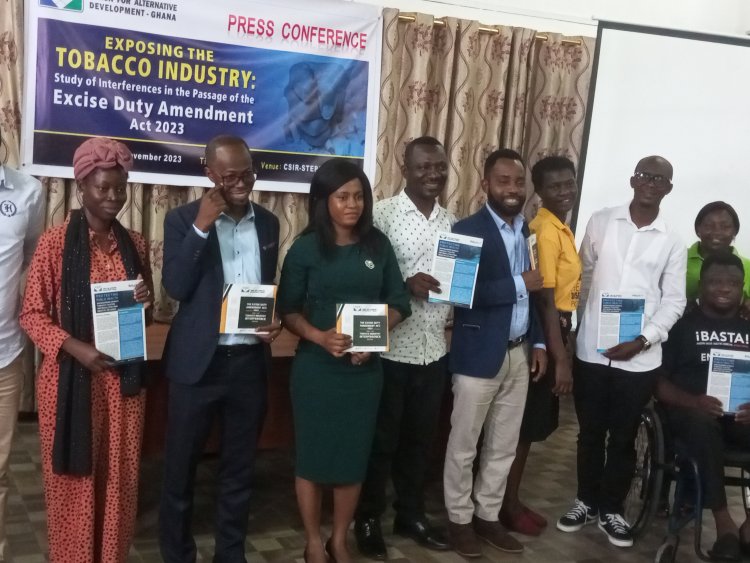
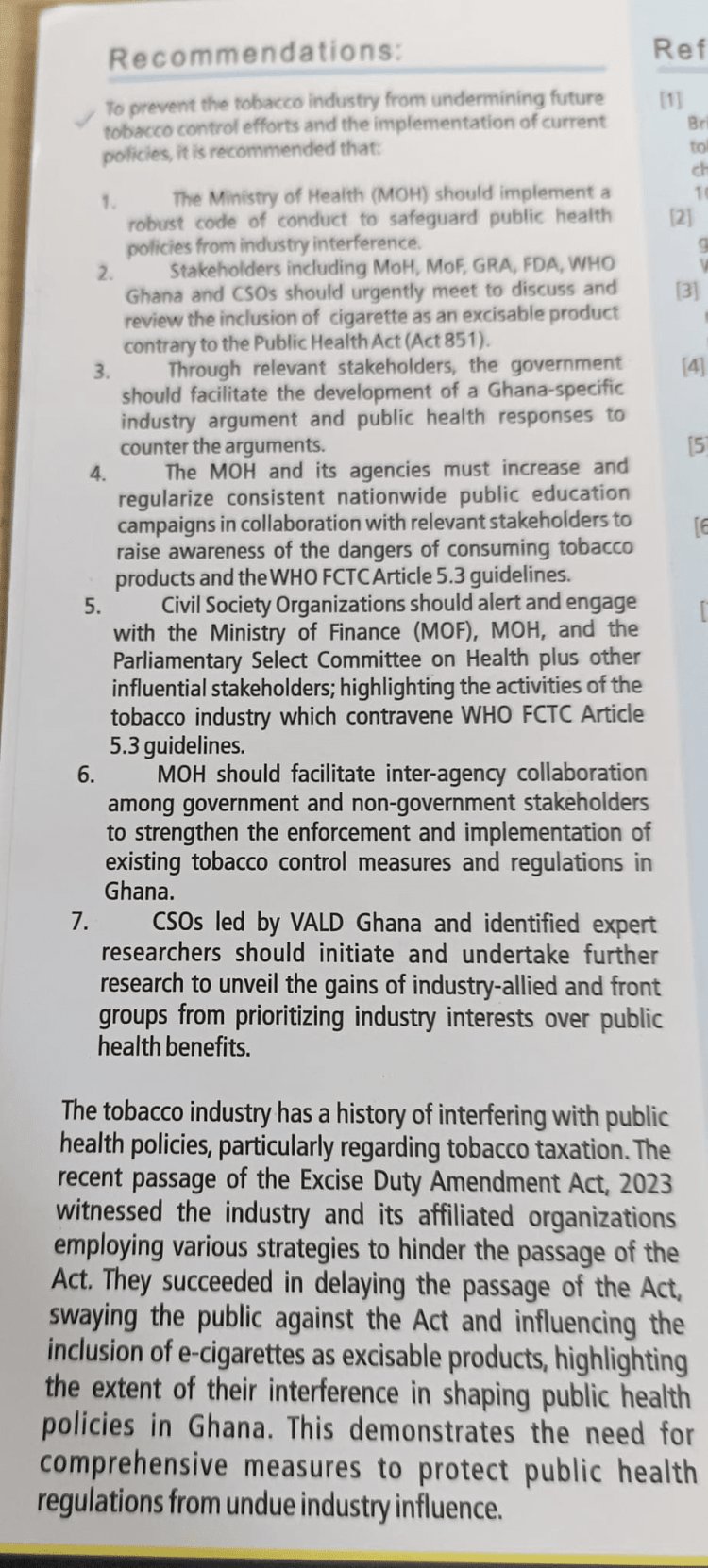

 Freeman Koryekpor
Freeman Koryekpor 


































